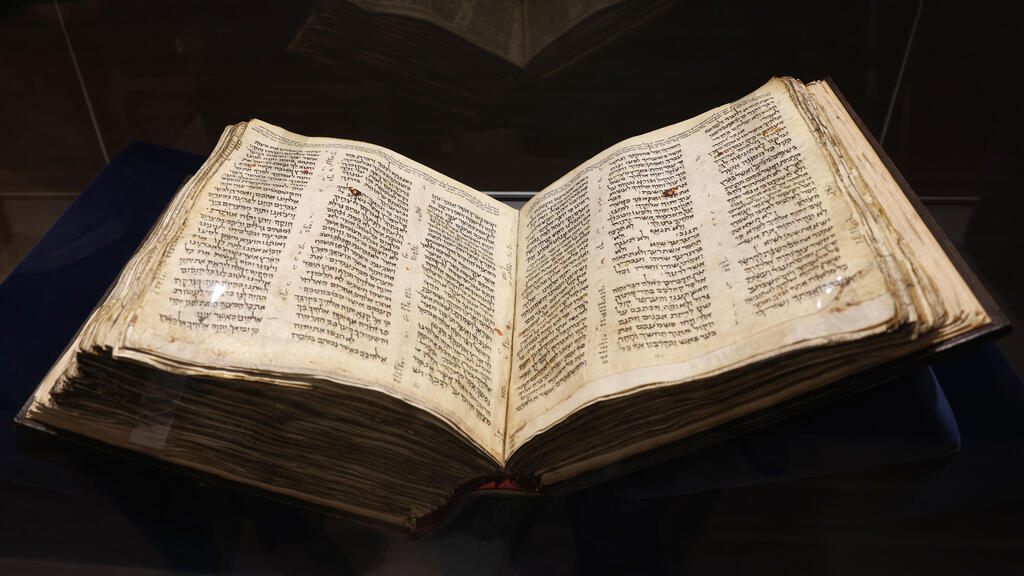Codex Sassoon: The Earliest, Most Complete Hebrew Bible
(Video: Courtesy of Sotheby's)
The oldest complete copy of the Hebrew Bible as we know it today, known as the Codex Sassoon, will be presented on Thursday for public viewing in Israel’s Anu Museum of the Jewish People in Tel Aviv for one week only.
Written by a single Jewish scribe on 400 pages of parchment about 1,100 years ago, the Codex Sassoon is expected to fetch $30 million to $50 million when it is sold by Sotheby’s auction house this May.
Dr. Orit Shacham Guber, the chief curator of the museum, expressed her excitement at the ancient bible. "In all of my career as a curator, I never presented an exhibit that tells such a massive story. When we built the museum, the exhibits were chosen not for their beauty or monetary value, but for the story they tell. The story has always been what motivated us to choose one exhibit over another."
Codex Sassoon: The Earliest, Most Complete Hebrew Bible
(Courtesy: Anu)
She further explained that “behind the codex, there's a story of the preservation of Hebrew tradition and the passing of the torch, allowing Hebrew to be preserved through the years. Additionally, there are stories of people, wanderings, mystery, disappearance, and rebirth. We're proud and excited to present such a significant part of the Jewish story."
Irina Nevzlin, Chairperson of the Anu Museum Directorate, also expressed her excitement. " We're in complex and challenging times, both in Israel and around the world. During times when everything seems chaotic and the future is unclear, it's helpful to touch something eternal that has existed for thousands of years, that tells the story of our people.”
Codex Sassoon in Israel
(Video: Courtesy of Anu Museum)
The Codex Sassoon is named after the book collector David Solomon Sassoon, who acquired it in 1929 for 350 British pounds, the equivalent of about $28,000 today, when it resurfaced after 600 years.
Sassoon added his bookplate to the inside cover of the binding, extending a centuries-long string of inscriptions detailing the book’s Jewish ownership, much of it throughout what is present-day Syria. The record does not show what happened between when the synagogue where it had been housed was destroyed and Sassoon’s acquisition.
But for the last century, it has been in private collections, in contrast to the other books near its caliber which are owned by major museums and are on display. What remains of the Aleppo Codex can be viewed at the Israel Museum in Jerusalem, while a later but more complete copy is on display in Russia.
The book’s latest owner is Jacqui Safra, part of the storied Jewish banking family, who paid for carbon dating that put its age at about 1,100. The book was briefly displayed at the British Museum in 1982.
In the centuries preceding the appearance of the first codices, the Hebrew Bible was copied onto scrolls. The oldest among these are the Dead Sea Scrolls, which were written between the third century BCE and the first century CE.
These early texts were copied without division into chapters and without punctuation, accentuation, or cantillation marks to clarify how they should be read.
Professor Yosef Ofer, an expert in biblical manuscripts from the Department of Bible Studies at Bar-Ilan University, expressed hope that the codex will remain to be displayed even after its sold.
"I have known about this manuscript for years, but only indirectly, through black-and-white photographs that were transferred to the National Library," he said. "I hope and pray that the buyer will also allow the public access to the ancient Bible in the future."





